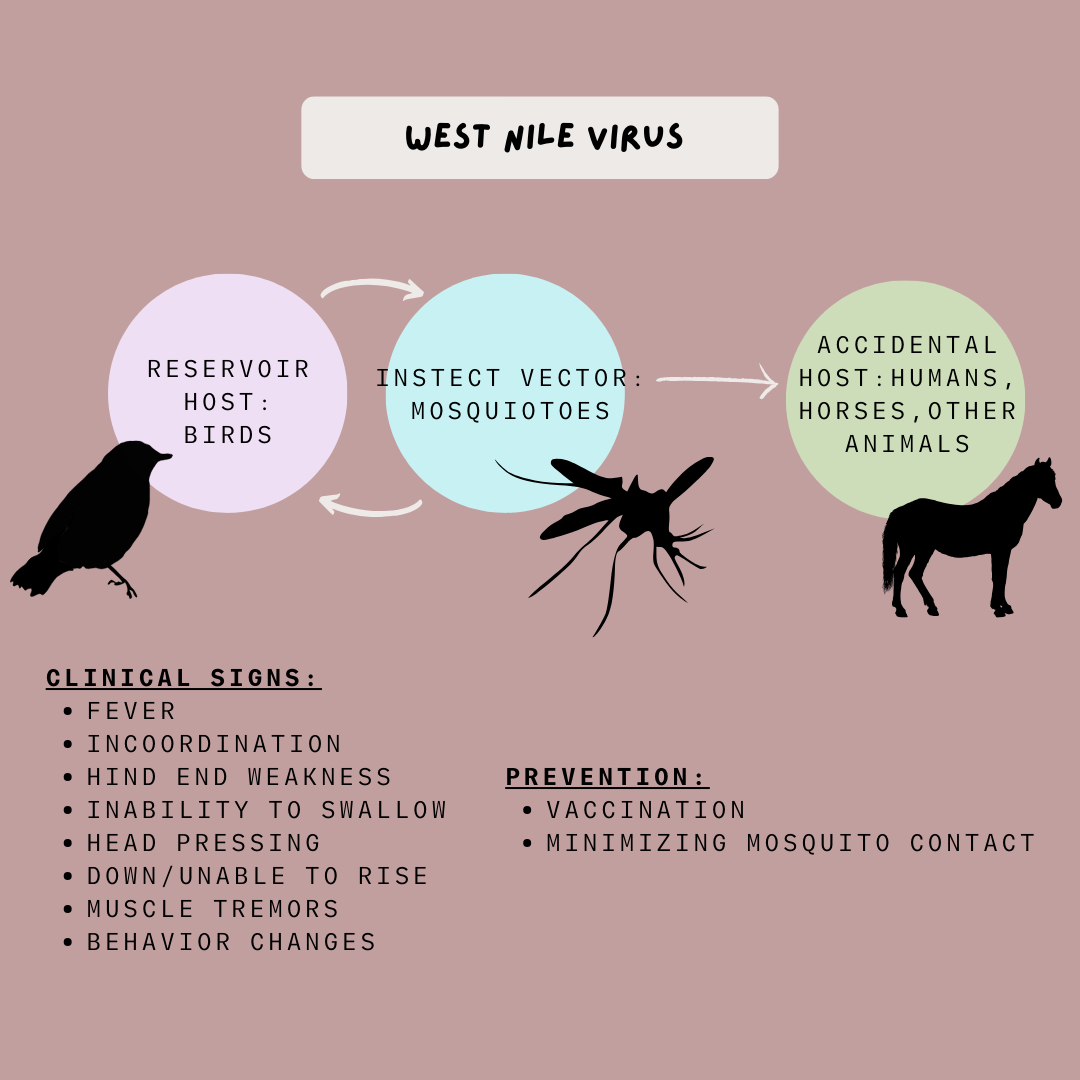West Nile Virus
West Nile Virus (WNV) causes neurologic disease in horses, and is a disease that we recommend horses within our practice area are vaccinated against annually. WNV can cause encephalitis (inflammation of the brain) or meningitis (inflammation of the lining of the brain and spinal cord) in humans and horses.
WNV is transmitted to horses via the bite of a mosquito. Mosquitoes may pick up the virus when they take a blood meal from wild birds that are infected. Those mosquitoes may then transmit the virus to people and other animals when biting to take another blood meal. Due to this mosquito vector, WNV cases are seen during the summer and fall months, with September and October being times of peak incidence of this disease.
Once infected, the virus travels to the central nervous system. Horses infected with WNV may initially present with the nonspecific clinical signs of fever, lethargy and decreased appetite. The onset of neurologic symptoms is sudden and progressive, and might include a change in personality (hyperexcitability or aggression), development of muscle fasciculations (tremors), abnormal gait, incoordination of movements (ataxia) and cranial nerve abnormalities (muzzle deviation, head tilt, facial nerve paralysis, inability to swallow). Neurologic deficits may progress to recumbency, with the horse becoming unable to stand.
A definitive diagnosis of WNV can be made using a blood test or through analysis of cerebral spinal fluid or brain tissue. There is no specific treatment for WNV, therefore prevention is highly recommended by immunizing your horse with the WNV vaccine annually. The mortality rate of horses infected with WNV is high, and 30% of horses develop paralysis of at least one limb, and most horses are euthanized for humane reasons or die spontaneously. With aggressive medical management and supportive care, some horses will begin to show improvement several days after the onset of clinical signs, and over several months a full recovery can sometimes be achieved in these horses. In the state of Vermont, WNV is a reportable disease.
For more information on West Nile Virus, please visit the Vermont Department of Public Health website at http://healthvermont.gov/prevent/arbovirus/wnv/wnv_fact.aspx

